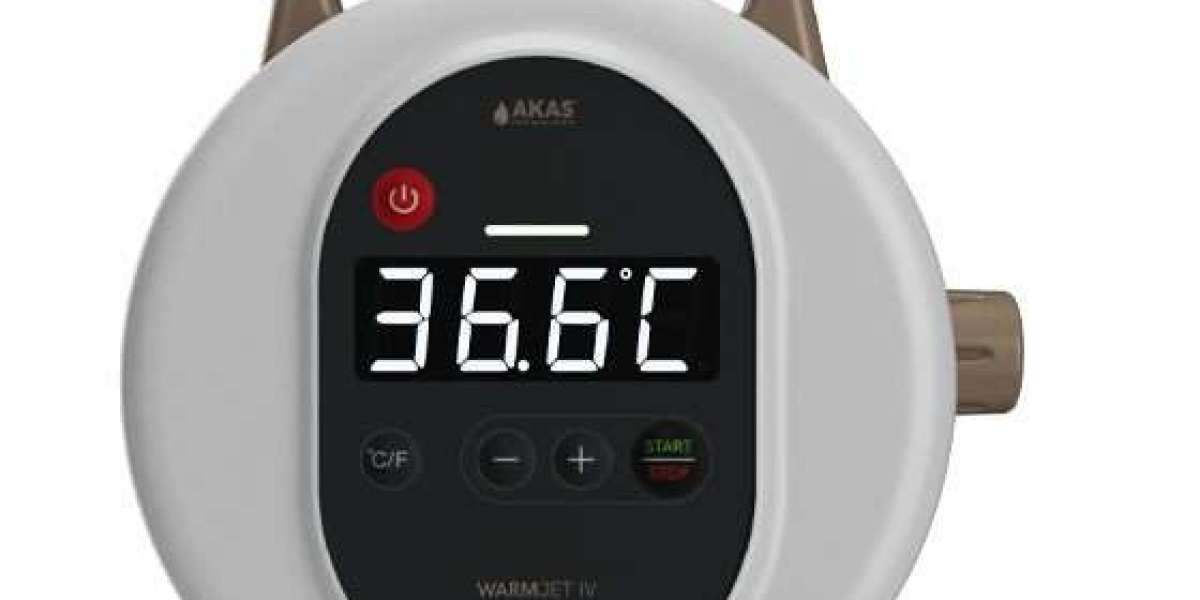Providing safe, effective care across a wide range of departments requires hospitals to rely on devices that are both dependable and versatile. A fluid warmer machine plays a quiet yet critical role in supporting this standard—ensuring that blood and IV fluids maintain optimal temperature during delivery. In multi-speciality hospitals, the need for precision and speed is amplified, making the right fluid warmers a non-negotiable investment.
Why Multi-Speciality Hospitals Need High-Quality Fluid Warmers
- Standardised care across departments
Different departments—ICUs, surgical wards, maternity, emergency—require consistent warming protocols to avoid patient hypothermia. - Rapid response during emergencies
Fluid warmer machines ensure blood and saline are immediately usable during trauma or critical care without risking thermal shock. - Improved patient outcomes
Maintaining normothermia reduces the risk of complications such as cardiac stress, clotting issues, and prolonged recovery. - Support for vulnerable patients
Neonates, elderly patients, and those undergoing major surgery benefit greatly from fluids administered at body temperature. - Compliance with clinical guidelines
Using fluid warmers supports hospital adherence to NABH, JCI, and international patient safety standards.
Key Factors to Consider When Selecting a Fluid Warmer Machine
1. Temperature Accuracy and Stability
- Look for models that offer precise thermal regulation.
- Machines should maintain a steady 37°C with minimal fluctuations.
- Stability is vital in operating theatres and transplant procedures.
2. Warming Method (Dry Heat vs. Water Bath)
- Dry heat models reduce contamination risks and require less maintenance.
- Water-based systems may offer faster warming but pose infection concerns.
- Consider departmental hygiene standards and ease of operation.
3. Flow Rate Compatibility
- Check if the machine supports both low and high flow rates.
- Suitable for departments with different infusion volumes, such as oncology or trauma units.
- Multi-speed compatibility offers flexibility in patient treatment.
4. Portability and Size
- Compact units benefit smaller departments and ambulatory settings.
- Mounted or portable warmers work well in emergency and surgical environments.
- Evaluate available space before finalising installation types.
5. Ease of Integration
- Compatibility with syringe pumps and volumetric infusion systems is essential.
- Machines should seamlessly connect without added training or accessories.
- Look for designs with standardised tubing and inlet systems.
6. User-Friendly Controls
- Intuitive digital interfaces reduce the learning curve.
- Staff should easily adjust settings without extensive technical training.
- Alarms and LED displays enhance safety and responsiveness.
7. Built-In Safety Features
- Machines should include over-temperature protection and auto shut-off.
- Alarms for air bubbles or blockages reduce the risk of complications.
- Safety standards must align with hospital biomedical equipment protocols.
8. Warming Speed
- Evaluate how quickly the machine can warm fluids from room temperature.
- Time-sensitive environments benefit from rapid heat-up capabilities.
- Choose models that warm in real-time without compromising consistency.
9. Maintenance and Servicing
- Opt for systems with self-diagnostic features and minimal servicing needs.
- Easily replaceable parts reduce downtime.
- Availability of after-sales support is essential for long-term use.
10. Department-Specific Usage
- Surgical units may need inline warmers with continuous heating flow.
- ICUs require machines that support multiple IV types and intermittent use.
- Emergency departments benefit from mobile units for fast intervention.
Department-Wise Considerations for Fluid Warmers
Surgery and Operating Theatres
- Require uninterrupted warming for blood and fluids during long procedures.
- High-performance machines prevent perioperative hypothermia.
Intensive Care Units
- Need reliable temperature control over extended periods.
- Machines should run 24/7 without overheating or noise.
Emergency and Trauma
- Portability and warming speed are critical in golden-hour situations.
- Devices must be impact-resistant and easy to set up on the move.
Neonatal and Maternity Care
- Fluid warmers must offer precision without overshooting temperature.
- Preventing heat loss in newborns starts with proper IV warming.
Oncology and Dialysis
- Long-duration therapies demand stable fluid temperature.
- Systems must be energy efficient and silent to ensure patient comfort.
Questions Hospitals Should Ask Before Buying a Fluid Warmer Machine
- Does the machine support the volume and fluid types commonly used in our facility?
- Is it compatible with our existing syringe and infusion pumps?
- Are we purchasing a CE-marked or FDA-cleared device?
- How frequently will we need to maintain or calibrate it?
- Does it have built-in safety and alarm systems suitable for 24/7 operation?
Benefits of Investing in the Right Fluid Warmers
- Reduces post-surgical complications
- Improves staff efficiency and patient comfort
- Aligns with accreditation requirements
- Supports broader hospital workflows
- Protects high-risk patient groups effectively
Conclusion
Choosing the right fluid warmer machine is not just a clinical decision—it’s a strategic move toward safer, more efficient, and high-quality care. In multi-speciality hospitals, where patient needs vary significantly across departments, fluid warmers must be dependable, adaptable, and compliant with stringent medical standards.
Akas Infusion, currently the largest manufacturer, aims to become the global leader in Syringe and Infusion Pumps, offering reliable solutions that meet the evolving needs of hospitals and healthcare institutions.



